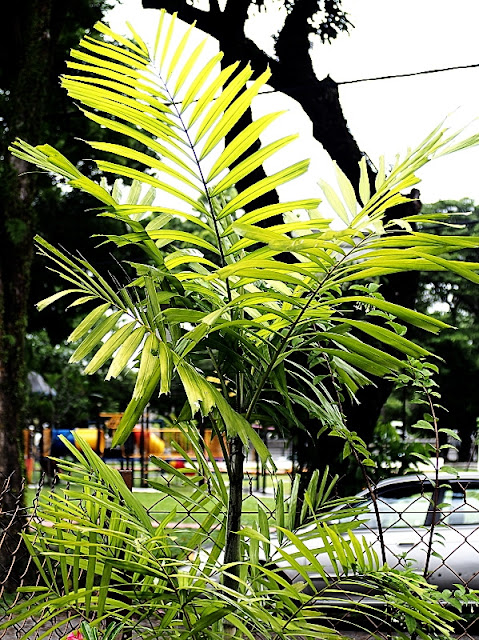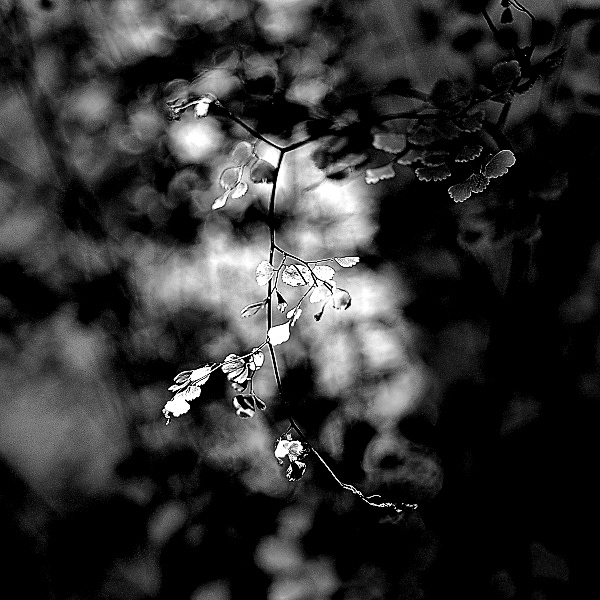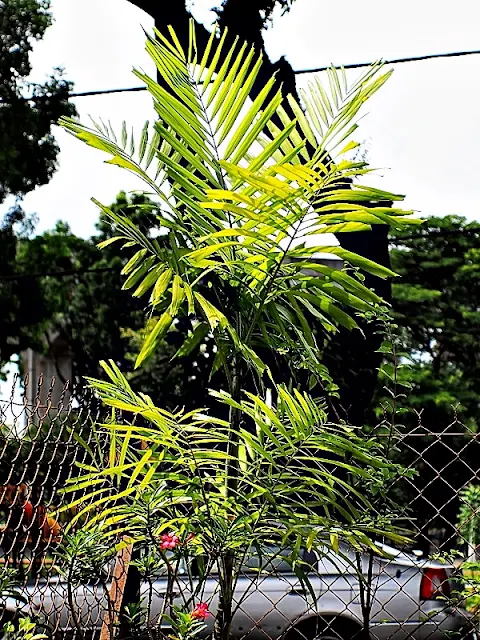Search ImagingPixel for Images by Camera or Lens
Friday, July 11, 2025
Photo of the Day
Thursday, July 10, 2025
Photo of the Day
Vintage Camera Marketplace by ImagingPixel

Wednesday, July 9, 2025
Photo of the Day
Vintage Camera Marketplace by ImagingPixel

Tuesday, July 8, 2025
Photo of the Day
Vintage Camera Marketplace by ImagingPixel

Monday, July 7, 2025
Olympus Pen E-P5, Going Legacy With Focus Peaking
One of the best aids a vintage photo enthusiast could have when using legacy lenses mounted on their mirrorless digital camera is a 'focus peaking' (or 'peak focusing,' both are the same) feature. When used with manual focus lenses or in low-light conditions, the feature highlights the edges of in-focus areas in the camera's viewfinder or LCD screen with a color overlay or a highlighted display. As the focus is adjusted, the highlighted edges will move across the screen to follow suit portions of the image selected to be in sharp focus.
The feature, or technique, first developed for professional video cameras to help maintain critical sharpness during scene transitions, migrated to still photography as mirrorless cameras eliminated optical viewfinders, relying instead on electronic displays that could overlay focus data directly onto the live images.
Integration of this feature across a few camera models has helped to realize the re-use of legacy lenses, which offers cost-effective solutions for color characteristics, macro precision, and creative depth-of-field effects. For legacy lens users, the potential of these optics, unimaginable when they were first manufactured, is back to the fore.
The first digital camera to incorporate focus peaking in the product line was the Sony NEX digital cameras introduced in 2011. Panasonic's Lumix GH series (GH4, GH5, GH5S, and GH6) implements peaking with user-selectable highlight colors (red, blue, yellow) through dedicated processor arrays that monitor luminance gradients.
Sony's Alpha cameras employ a similar approach with added focus magnification compatibility, while Canon's EOS R system integrates peaking within its Focus Guide system. Fujifilm X-series cameras with focus peaking include the X-T5, X-T4, X-T3, X-Pro3, and X-H1.
From the stables of Olympus, two models well documented with this feature are the Pen E-P5 and E-M10. On the E-P5 (2012), which is used for this shoot, the Peak Focusing On/Off menu item is nestled (Olympus style) four layers down the Custom Menu (Gearbox) tab. To set the feature, the sequence to follow is:
Images for this test session was captured on an Olympus Pen E-P5, mounted with a legacy Zuiko OM 35mm f/2.8. The E-P5 was introduced by Olympus in 2012, while the seven elements in six groups Zuiko OM 35mm f/2.8, recognized for its top level image clarity, sharpness and minimum aberrations and flare, was among the original batch of Zuiko lenses that debuted along with the OM system in the 70s. The lens was once a very popular choice among photographers, and it was also one of the most affordable Zuiko lenses.
While not all digital cameras are fitted with focus peaking functions, camera makers do provide other means of manual focus assist, which include magnification (zooming in on the image) or focus assist functions to let you get along.
Vintage Camera Marketplace by ImagingPixel

Monday, October 3, 2022
Olympus OM Zuiko 35mm 1:2.8, First Impression
My first tryout with the very compact and lightweight all-glass and metal wide-angle Zuiko OM Olympus Pen E-P5, Zuiko OM 35mm f/2.8 lens, as introduced by Olympus in 1972. As indicated by the ‘G’ designation, which shows the optical design of these early version lenses, the lens is a 7-element in 6-group construction. The optical design designation was dropped for later versions of the lenses. Newer versions of the lens are reported to have a longer body length and weigh significantly more.
The lens, considered for its high sharpness, contrast, and color rendition, is also acknowledged with low distortion and vignetting, and handles flare well with the hood attached, is highly recommended, among others, for landscape and architectural photography.
My test unit here, however, is not in the best of condition. It came with some dust and had a tinge of circular haze along the periphery of one of the inner elements.
Vintage Camera Marketplace by ImagingPixel

Monday, July 4, 2022
Helios Auto Wide 35mm f/2.8, In Portrait Mode
Helios "Made in Japan" lenses were produced for TOE (Technical and Optical Equipment Ltd), a Soviet-owned British Company that sold Zenit cameras and Soviet electronic goods in the United Kingdom and the Netherlands. To complement its range of photographic gear, TOE imports and sells generic Japanese lenses and rangefinder accessories as Helios products.
These items include 28 and 135-mm lenses, teleconverters, low-priced zooms, flash units, and accessory finders, which were not available under the original Helios branding.
Vintage Camera Marketplace by ImagingPixel

Monday, September 14, 2020
Yashica ML 35mm f/2.8, A Monotone Edit
Another session with the Yashica ML 35mm f/2.8 mounted on the Pen E-P5, with images shot in RAW, post-processed, and print-enhanced for web publishing. Images were edited with Auto Tone Correction, enhanced further with a higher dose of contrast setting in Monochrome & Sepia, Tone Curve, and Unsharp Mask.
Vintage Camera Marketplace by ImagingPixel

Monday, December 17, 2018
Yashica ML 35mm f/2.8, The Odd One Out
The Yashica ML 35mm f/2.8, which can be a rare find among the selection of Yashica ML lenses, is a series of multicoated pro-line lenses developed and produced by Yashica (Kyocera). This series was designed to fill the gap between Yashica's own consumer-grade DSB lens line and the state-of-the-art Contax/Yashica Zeiss T*, all of which were built at their manufacturing facility in Japan.
The series is also acknowledged as an excellent performer, even at a wide-open aperture when adapted to crop-sensor digital bodies. Looks like the ML 35mm f/2.8 as well, as can be seen from these images posted here, is no exception. To top off the accolades, this unit is sometimes referred to as the 'poor man's Zeiss', and in passing, is compared equally or even better than the Distagons.
From what is available on the Net, while there is not too much of it, the ML 35mm f/2.8 was produced in two versions, an earlier version with 7 elements in 6-groups, identified by the diamond knobs on its rubber grip, and a later with 6-elements in 5-groups which comes with square knobs./p>
An anomaly I found is with the copy of the lens that I have. The lens has a fairly large pin protruding out of the backplate of the lens mount assembly. This configuration will not let me mount the lens to either the Yashica FX-3 Super 2000 or a Contax RTS II, both of which I have in my collection. The lens, however, can be mounted to the M4/3 FX/CY adapter without any problem.
Vintage Camera Marketplace by ImagingPixel

Monday, December 11, 2017
Nikkor Pre-Ai 35mm f/2.8, In Black-n-White
The Nikon Nikkor Pre-Ai 35mm f/2.8, an improved version of the Nikkor S Auto model, was first introduced in 1959. The version is more compact than its predecessor, extending only 44.5mm out when mounted on the camera body, and comes with NIC (Nikon Integrated Coating) on all air-to-glass surfaces, which contributed to the improved performance, reduced flare and ghost, and improved color rendition.
From its basic 6 elements in 6 group construction, the lens evolved through both multiple optical and cosmetic variations and ends with a 5-element optical design. The Ai version was made from 1979 through 1981, while the Ai-S was made available from 1989 through 2005.
The lens is a nice fit on the Olympus Pen E-P5, giving my smallish hands just the right leverage and finger distance for both aperture and focusing control. Focusing was, of course, soft and smooth, as smooth as a Nikkor should be, while aperture clicks were just right, not that I used much of it. Most of my quick-take images were taken at full aperture and almost at the lens's shortest focusing distance.
Vintage Camera Marketplace by ImagingPixel

Popular on ImagingPixel
-
CCD Resurgence: Image making with a legacy Nikon Nikkor Ai 28mm f/3.5 on an equally vintage 10MP CCD Nikon D200 AOS-C digital SLR ca...
-
Analog Diary: Film photography favorites, image making with a Fuji K-28, a manual distance focus, shock and weather-proof 35mm film ca...
-
CCD Resurgence: A new set of impressions with the Nikon D200 and a newly re-acquired copy of the Sigma Zoom-γ 21-35mm f/3.5-4. ...
-
01/18/2017, Olympus Pen FT, F.Zuiko 38mm F1.8 An idea book for the pandemic stay-at-home confinement, a date-timed, annotated thema...
-
Compact Comeback: A quick look at image making with a vintage compact, the Olympus VR-370, held vertically to shoot in the half-fram...
-
Digital Moments : A look at vintage primes and legacy lenses equivalent to the standard normal primes on 4/3 mirrorless or APS-C dig...
-
Digital Moments: A quick look at a highly recommended legacy prime well worth its keep value and usability on modern digital cameras...
-
Olympus VR-370 << Click on image for enlarged Lightbox display >> Vintage Camera Marketp...
-
Olympus Pen E-P5, Olympus Zuiko MC 21mm f/3.5 << Click on image for enlarged Lightbox display >> ...
-
Olympus VR-370 << Click on image for enlarged Lightbox display >> Vintage Camera Marketp...




























































